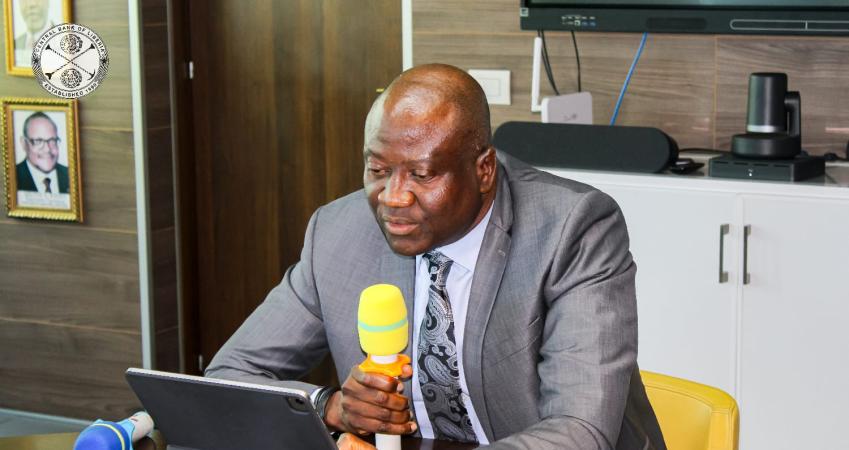
The Central Bank of Liberia (CBL) has opted to maintain its Monetary Policy Rate (MPR) at 17.25%, aiming to stabilise prices and safeguard the Liberian dollar amid ongoing economic challenges.
The decision was announced on July 23, 2025, following the Bank’s third Monetary Policy Committee meeting.
Executive Governor Henry F. Saamoi emphasised the human impact of this move: “We understand the pressure rising prices place on Liberian households.
By holding the policy rate steady, we are working to keep inflation in check and ensure that the Liberian dollar remains stable. This is about protecting the everyday citizen’s ability to afford basic goods and services.”
The steady MPR reflects a tight monetary policy stance designed to anchor inflation expectations, preserve macroeconomic stability, and protect consumer purchasing power.
Alongside the MPR, other monetary tools remain unchanged, including the interest rate corridor and reserve requirements for Liberian and US dollar deposits.
Governor Saamoi highlighted recent positive trends, noting that inflation declined from 12.5% to 11.1% in the second quarter of 2025, while the economy grew by 4.3%, moving Liberia closer to its 5.6% growth target.
Increased remittances—up 11.4%—have also contributed to exchange rate stability, though challenges persist with non-performing loans at 26.7%.
The governor attributed part of the easing inflation to improved road infrastructure: “We must commend the central government’s efforts in road connectivity.
This is allowing farmers to bring their goods to market faster, which is helping lower prices.”
Looking ahead, the CBL is promoting greater use of the Liberian dollar domestically and encouraging adoption of the Pan-African Payment and Settlement System (PAPSS) to ease cross-border trade in local currency, reducing reliance on the US dollar.
Finance Minister Augustine Ngafuan applauded the Central Bank’s cautious approach while urging stronger cooperation and financial reforms. He described PAPSS as “quietly revolutionary,” adding: “If someone in Liberia can pay for goods in Ghana without using US dollars, that’s not just convenience—it’s transformation.”
Ngafuan also announced plans to work closely with the Liberia Bankers Association to ensure the financial sector aligns with national development goals, underlining the need for a banking system that supports rather than hinders economic progress.
With global uncertainties and fluctuating export prices, Liberia’s policymakers remain vigilant, balancing immediate pressures with the need for sustainable economic resilience.



